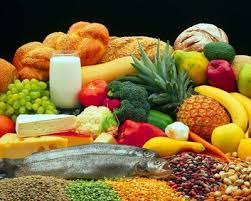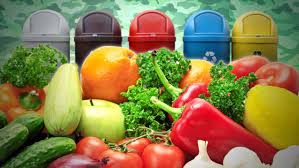Food is essential for our bodies to:
develop, replace and repair cells and tissues;
Produce energy to maintain warm, move and work;
Carry out chemical processes such as the digestion of nutrient;
Protect against, protest and fight infection and recover from illness.
Food is created up of nutrients. Micronutrients such as vitamins and minerals are required solely in diminished quantities. Micronutrients such as carbohydrates, protein and fat are needed in larger quantities. The body cannot work properly if one or more foods are lacking. A sound and balanced diet provides nutrients in the correct quantities and combinations that are safe and free from disease and harmful substances.
Prevention is better than the cure. The earlier a person begins to eat a healthy and balanced diet, the more he or she will remain sound. In one case the weight has been lost, it may be difficult to regain it because of tiredness and lack of appetite.
The section below contains some guidelines on healthy and balanced nutrition. These apply to everyone – whether they are tainted with HIV or not.
HEALTHY AND BALANCED NUTRITION
Enjoy a wide variety of foods
Eating well means eating a diversity of nutrients. No single food contains all the nutrients that our bodies need, except for breastmilk for babies up to the age of six months. Consuming a mixture of different foods will provide the nutrients that are all-important for our bodies. By taking care to take foods that are in season and locally available, feeding can be pleasurable, healthy and affordable.
Eat staple foods with every meal
Staple foods should make improving the biggest portion of a meal. These nutrients are comparatively cheap and provide a dependable sum of energy and some protein. Staples include cereals (such as rice, corn, millet, sorghum, wheat and barley), starchy roots (such as spuds, sweetened potatoes, cassava and yams) and starchy fruit (such as plantains).
However, basic foods are not enough to supply all the nutrients the body demands. Other foods must be consumed to provide additional energy, proteins and micronutrients.
Eat legumes if possible every day
These foods provide a person with the proteins needed to prepare and restore the body and also to build up strong muscles. They are serious sources of vitamins, minerals and fiber and help to maintain the immune system activity.
Legumes include beans, peas, lentils, groundnuts (including peanut butter) and soya beans. When eaten with staple foods the quality of protein is increased. Legumes are a cheaper protein source than animal foods, such as beef and chicken, and should be eaten every day, if possible.
Eat animal and milk products regularly
Foods from animals and fish should also be eaten as much as you can give them. They supply good-quality proteins, vitamins and minerals and extra energy. They will serve to strengthen muscles and the immune system.
These foods include all kinds of meat, poultry (birds), fish, eggs and dairy products such as milk, rancid milk, buttermilk, yogurt and cheese. If insects, such as caterpillars or grasshoppers, are part of your diet, they also supply beneficial nutrients.
Eat fruit and vegetables every day
Veggies and fruit are an important component of a sound and balanced meal. They provide the vitamins and minerals that maintain the body functioning and the immune system strong. These nutrients are particularly important for people surviving with HIV/AIDS to fight infection. Eat a wide variety as each one provides different vitamins and minerals. A list of recommended items is provided below.
Use fats and oils as well as sugar and sugary foods
Fats, oils and bread are good sources of energy and can help one gain body weight, which can be especially significant for those living with HIV/AIDS. They also add flavor to food, thereby stimulating appetite.
Fats and oils act as an significant function in a healthy and balanced diet. Even modest quantities can provide heaps of vim. Fats and oils include butter, lard, margarine, cooking oil (vegetable, coconut and palm oil), cream, mayonnaise and coconut cream. They are too found in avocados, oilseeds (sunflower, peanut and sesame), fatty meat and fish, curds and cheese.
Sugars and sugary foods include honey, jam, table sugar, cakes and cookies.
Although fats and carbohydrates are good sources of energy, they are not rich in other foods. They should thus be consumed in addition to other foods, not in lieu of them.
Drink lot of clean and secure water
Water is important for life and is necessary every day. A person requires close to eight cups of fluid per day. When it is really spicy, while exercising, sweating or suffering from diarrhea, vomiting or fever, a mortal needs to pledge yet more to replace the water that has been missed. If drinking-water is gathered from a protected well or borehole, it is important to store it in a neat container. If the urine is from an unprotected well or river the water should be boiled for at least ten minutes and stored in a clear container (see advice on food hygiene). In increase to drink fresh water, fluid can also come from juices, soups, vegetables and fruit as well as meals that have gravy or sauces. Nevertheless, avoid drinking tea or coffee with a meal, as this can cut the concentration of iron from the nutrient.
Alcoholic drinks remove water from the body and should thus be eaten exclusively in modified quantities. They can also step in with the action of medicines.
Click here for government certification in Health, Nutrition and Well-being





33 Comments. Leave new
Superb! I think all of us are already acquainted with this information but we usually take it for granted and tend to forget the importance of a balanced diet. Your work shall help others like me to give it a second thought and work towards a healthy tomorrow! 🙂
YesI hope so 😉
Food is important and thus fighting hunger in India is becomes very crucial.
Eat healthy and stay healthy.
Very well presented…..
Nice work!!!
Great efforts!
Eat healthy,stay fit!
Very healthy diet.. We should ensure that our diet is balanced at all times.. And try to eleminate all forms of unhealthy food items..
Nice post..and good suggestions to keep in mind..
Nicely Written 😀
Nice work 😀
well written 🙂
Very well written! 🙂
Truly stated!
very nice article…
Keep up the good work
Very nice work
Worth reading.
well written.
Well written!
Worth reading 🙂
Some people complain about oily faces and pimples. The main reason behind this is fast food full of fat and cholesterol.
The best solution to such a problem is eating fresh fruits which p.vide necessary vitamins and minerals to body and make us look fresh and healthy.
Nicely written
A healthy lifestyle is the key to a happy life, just what the article is conveying
We all have read this in school but we tend to forget it in practicality. A healthy and balanced diet is a necessity for all. Thank you for reminding us of the importance of it. Good effort.
your work will definitely shed some light on unaware minds who ignore dere health in the wake of junkies and irregularities
Thank You all….
The basic reason of our existence , amazing content very well executed commendable job
Great article
Its one of our basic needs so yes fulfilling it in the best way possible should be our duty. Well written and the points you gave were also very helpful 🙂
Great work!
So, straight forward and to the point, liked the style of writing.
🙂
Food love !!nice article